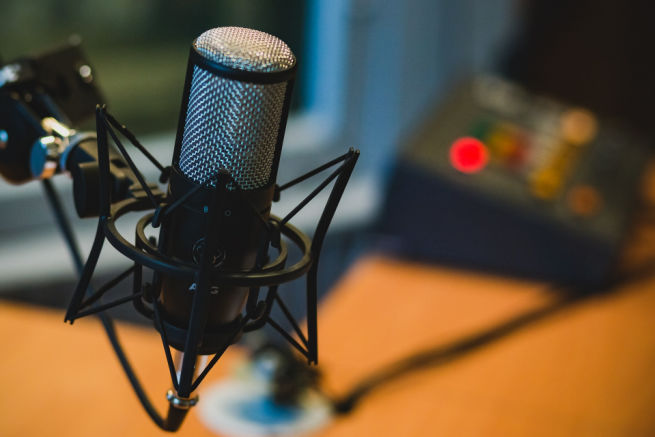Last week was a busy time presenting and attending the Nonfiction Writers Conference. An interview with Anna Quindlen kicked things off and she was incredibly inspiring.
I had the pleasure of presenting on How to Conduct Your Own Podcast Tour, which was well attended. Podcasts are extremely popular right now and it was fun to share information that so many are excited to act upon.
As I began creating and designing that presentation, it got me thinking about the differences and similarities between radio and podcasts, so that’s how I kicked off the presentation. I’d like to share a snippet of that today because understanding the differences may have an impact on not only what you decide to do, but your actual performance as a guest.
How radio and podcasts are similar yet different
Live shows vs. On-demand audio files
Radio shows are live, whereas podcasts are recorded, on-demand audio files. Radio is a one and done situation while podcasts will live on forever. But, like the English language, for every rule there are several exceptions. Radio can be recorded, but even playback is at a scheduled time. Radio shows are not on-demand. However, some radio shows are now being saved as podcasts. We see that with iHeart Radio for example. They have an entire podcasting arm. Most of the time, however, radio is live and then it’s over. The people who heard it at the time of airing, are the only people who heard it.
Live vs. recorded and edited
When you are on a live show, the audience hears you directly with exactly the words you are using. They hear the meaning you are communicating in that very moment. Podcasts, on the other hand, are almost always edited in post production. Often this is a good thing if they clean up and “ums” or “ahs” or lip smacks made over the microphone. But sometimes it goes beyond that. Some podcast editors and producers will cut out questions or parts of answers for a number of different reasons. The result can be that the final meaning conveyed is different from the original or master files. This happens in print interviews all the time. The bottom line is there is nothing you can do about this, but simply be aware of it. Live is live. People hear exactly what you say. Anything recorded can be altered.
Less intimate vs. more intimate
Radio is a less intimate medium than podcasting and here is why. Most people listening to podcasts are listening via their headphones or earbuds. You, as a guest on the show, are speaking directly into the listeners’ heads. Compare that to radio. Many people listen in the car with the speaker away from them on the dashboard. Those sound waves are coming at you from outside yourself at a distance. Again, podcasts are right in your ears. Remember that when you are a guest.
Broad topics vs. niche topics
Radio broadcasting has to stick to broad topics while podcasting can niche down to infinity. Radio is geographical with the exception on online radio shows and those saved as podcasts. For the most part, they are appealing and drawing a local audience. Almost everyone is interested in the big three: health, wealth, and relationships. Oh, and local politics as well. They are drawing a local audience, whereas you can have a podcast on the most niche topic you can think of because podcasts are drawing (or can draw) an audience globally. If you’re doing a podcast on the world’s largest rabbits, there is an audience for that. They don’t all live in Chicago, but are scattered around the world.
One and done vs. living on forever
Radio shows are one and done, whereas podcasts live on forever. This looks like a good thing, but it can impact you as a guest. Radio listeners can’t do searches, so repeated topics are fine. Podcast listeners, on the other hand, can search and find episodes on a particular topic going back years. Hosts aren’t always interested in covering similar topics when they know a show they did three years ago is still readily available to listen to. All topics are searchable. Therefore, it underscores the need to listen to shows that cover your topic, and then figure out how your message is unique and worth covering.
Bottom line
Radio and podcasts are both great ways to reach certain targeted audiences. Research and make sure that whatever you choose to do, you are reaching exactly the listeners you want to reach.
To your success!
Joanne
P.S. Where Lady GaGa got her name. (And if you just can’t wait to find out, skip to 1:35.)
P.P.S. Welcome to all our new members who came here from the Nonfiction Writers Conference. Glad you’re here!
#podcasts
#radio
#Bookpublicity
#Bookmarketing
If you’d like to receive juicy publicity secrets directly on a regular basis, join the Savvy Sunday Community at the bottom of this page.

